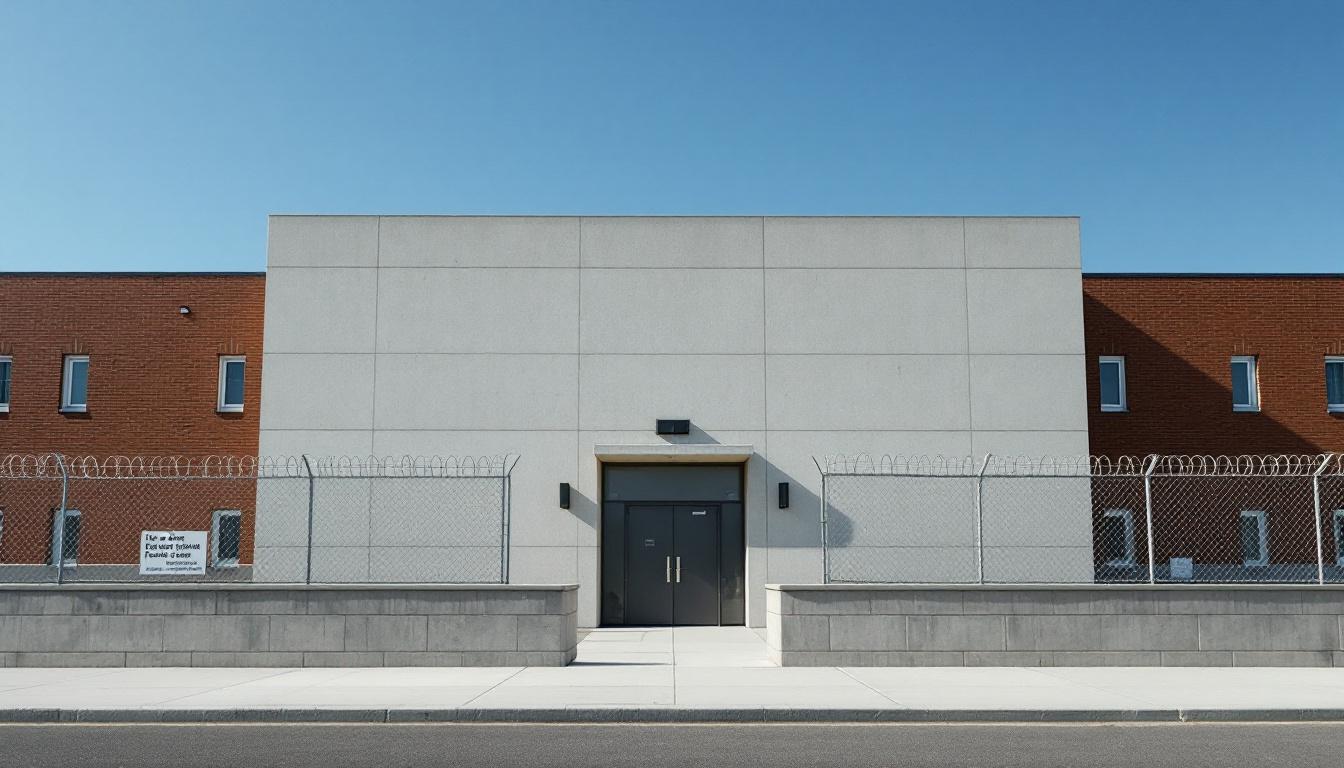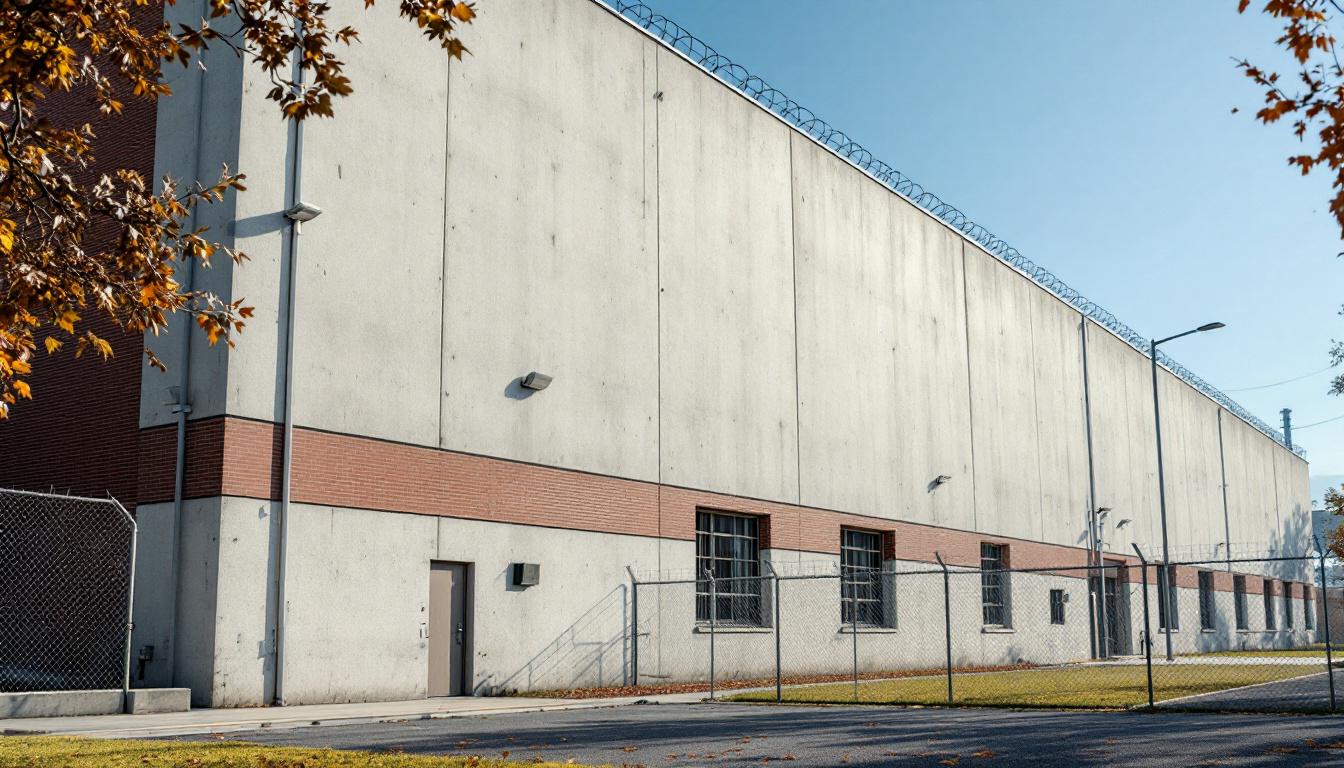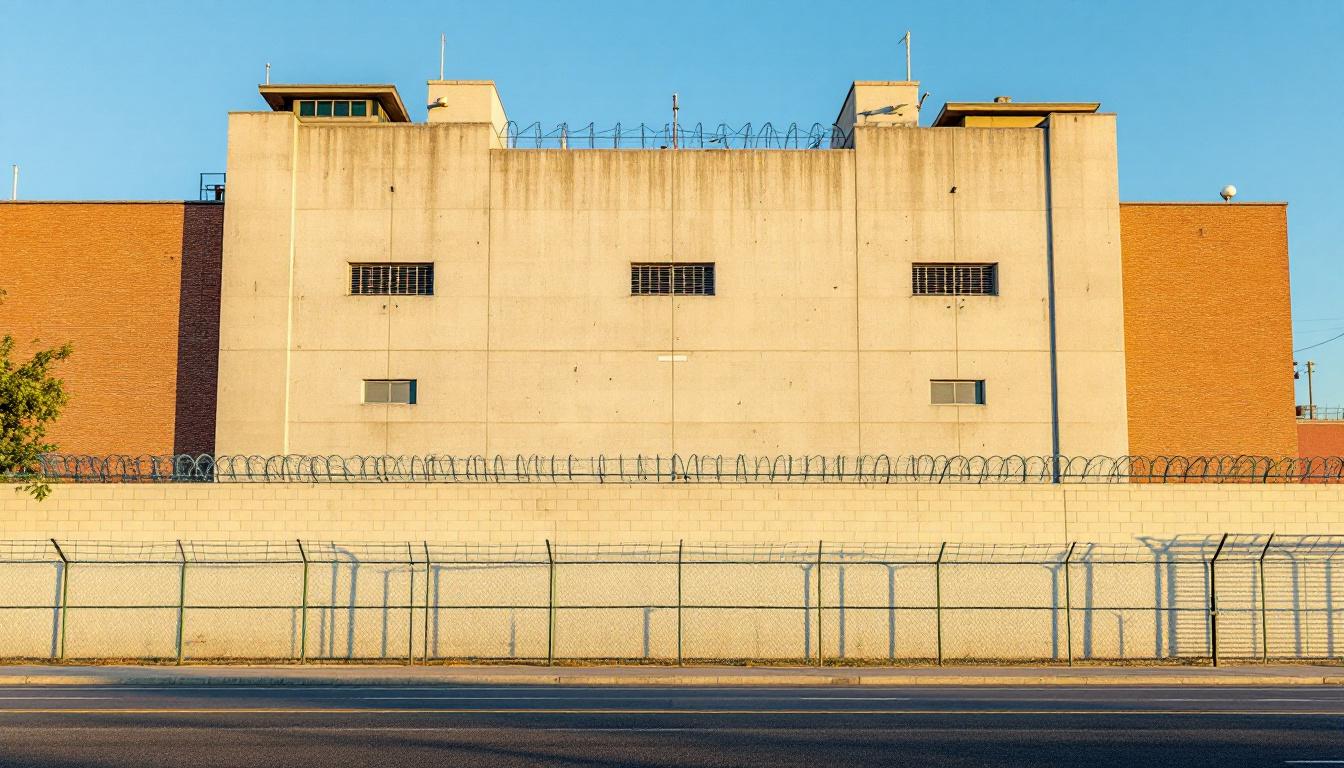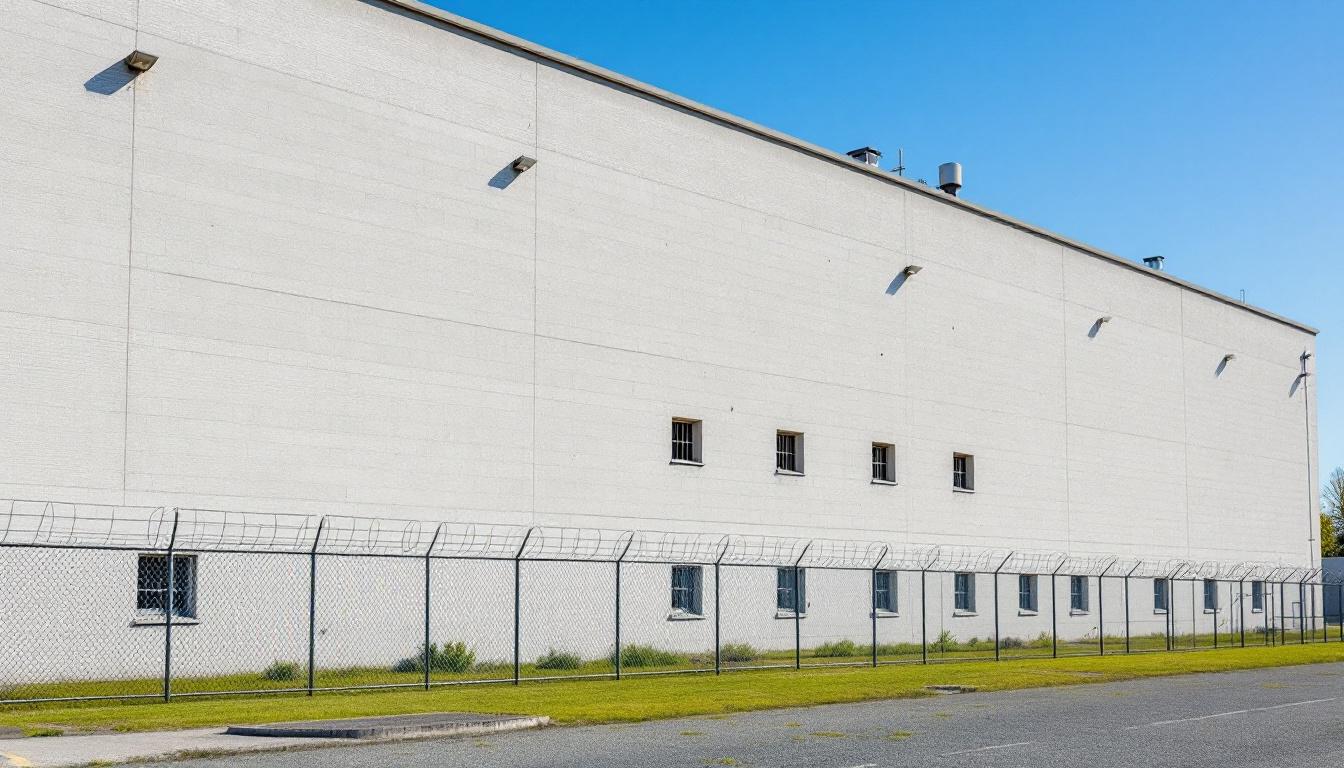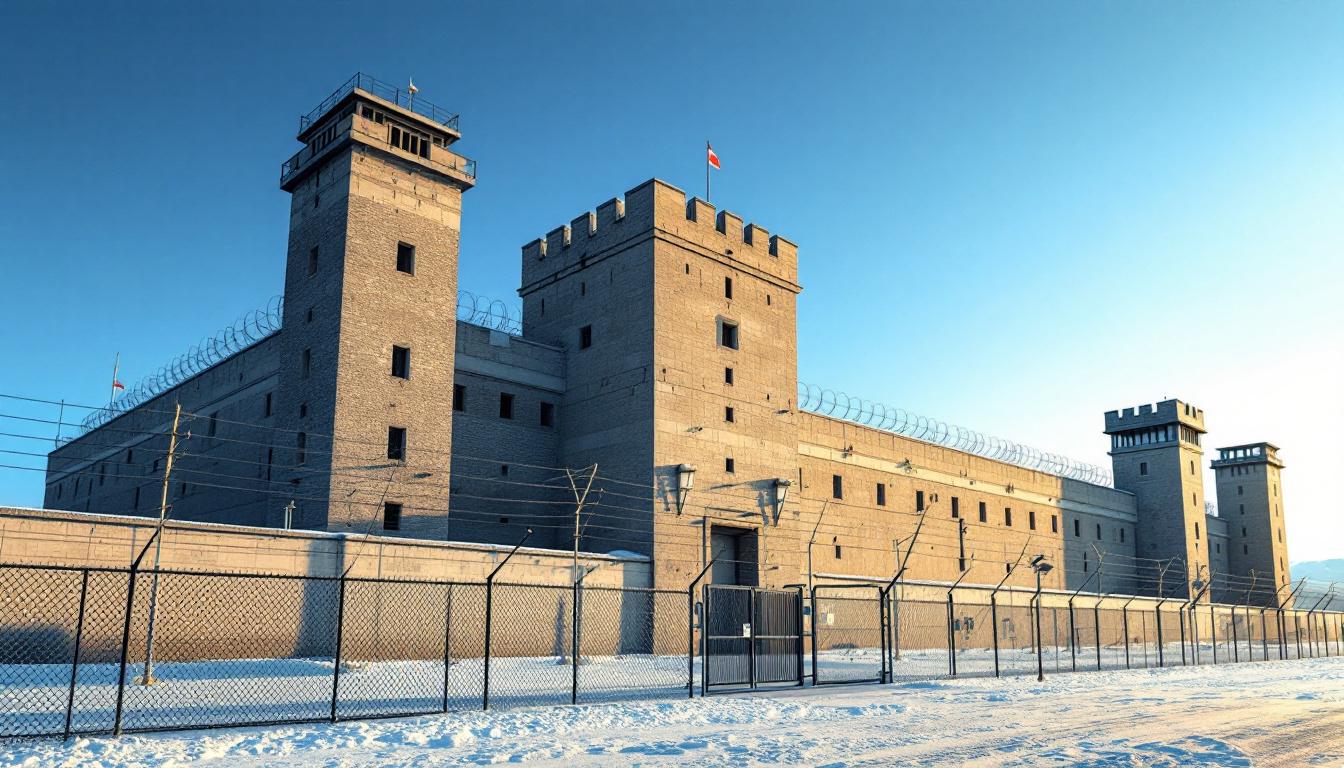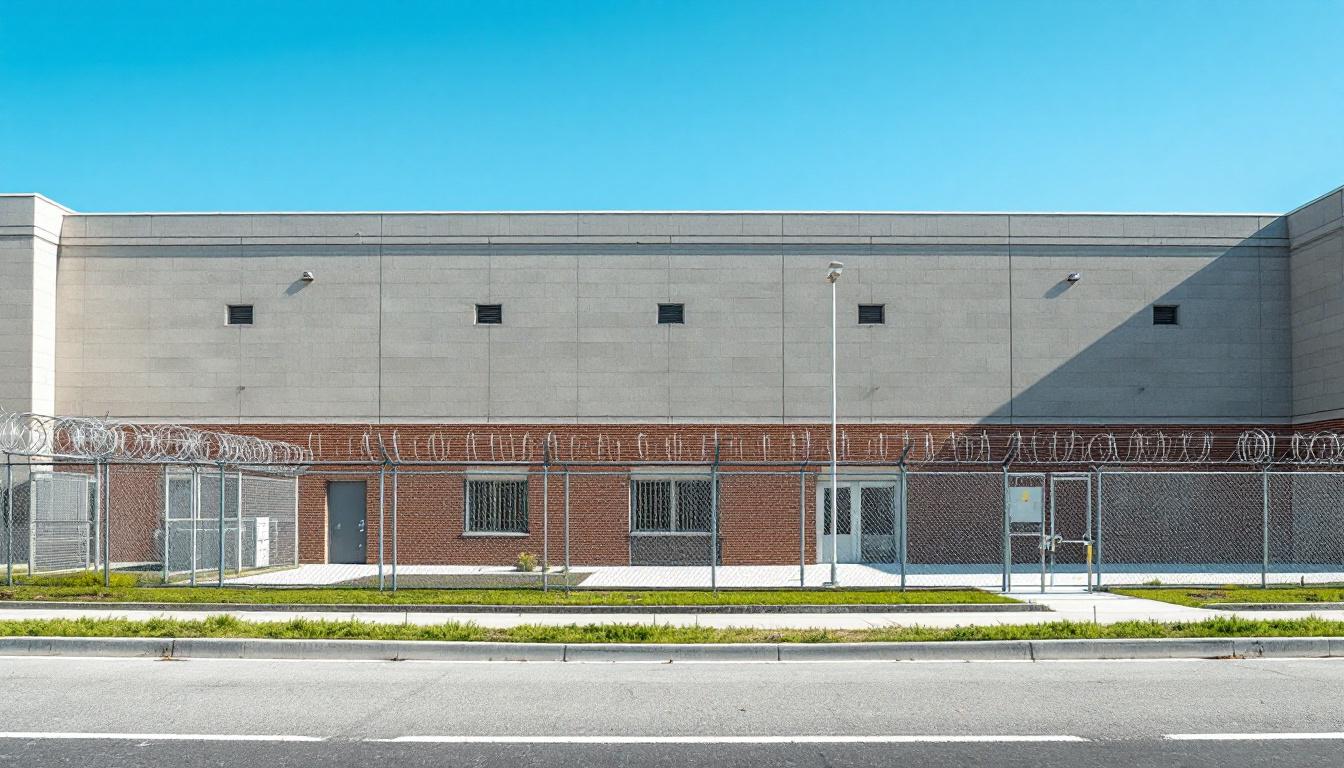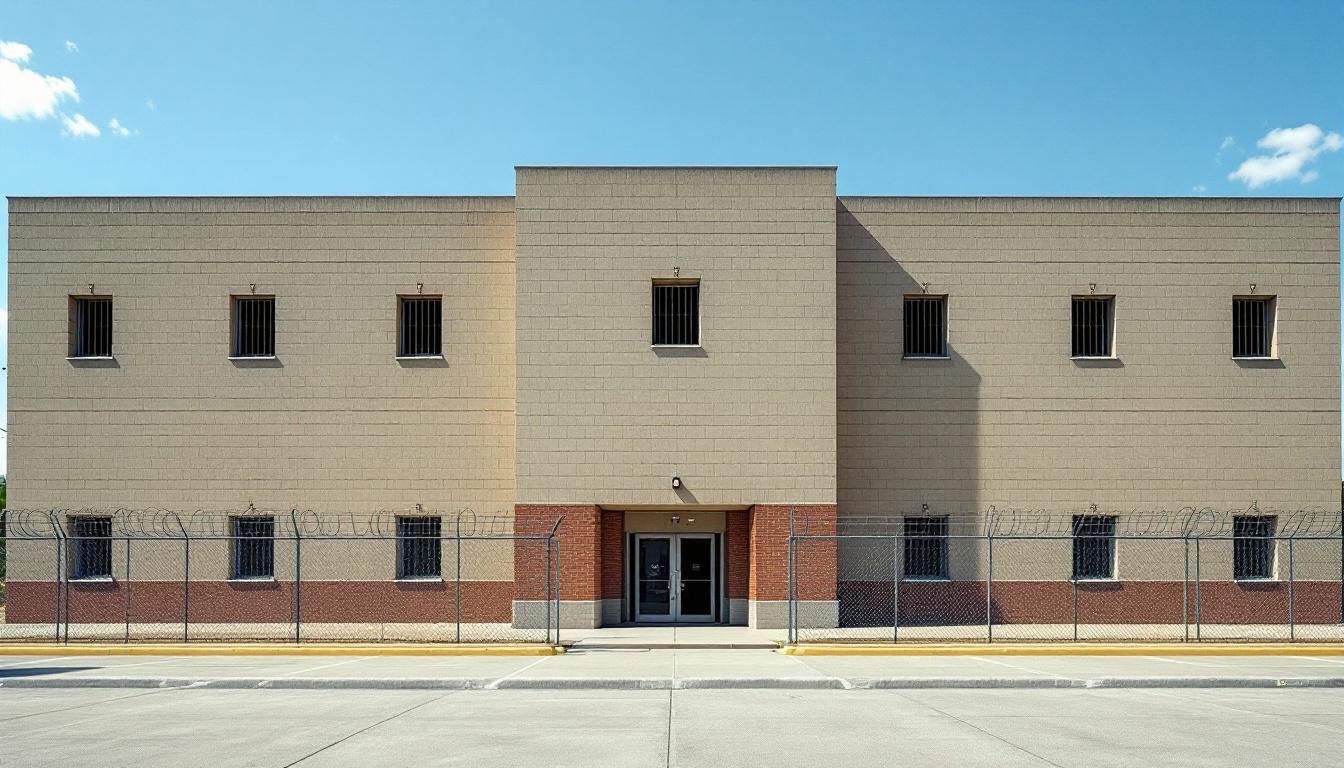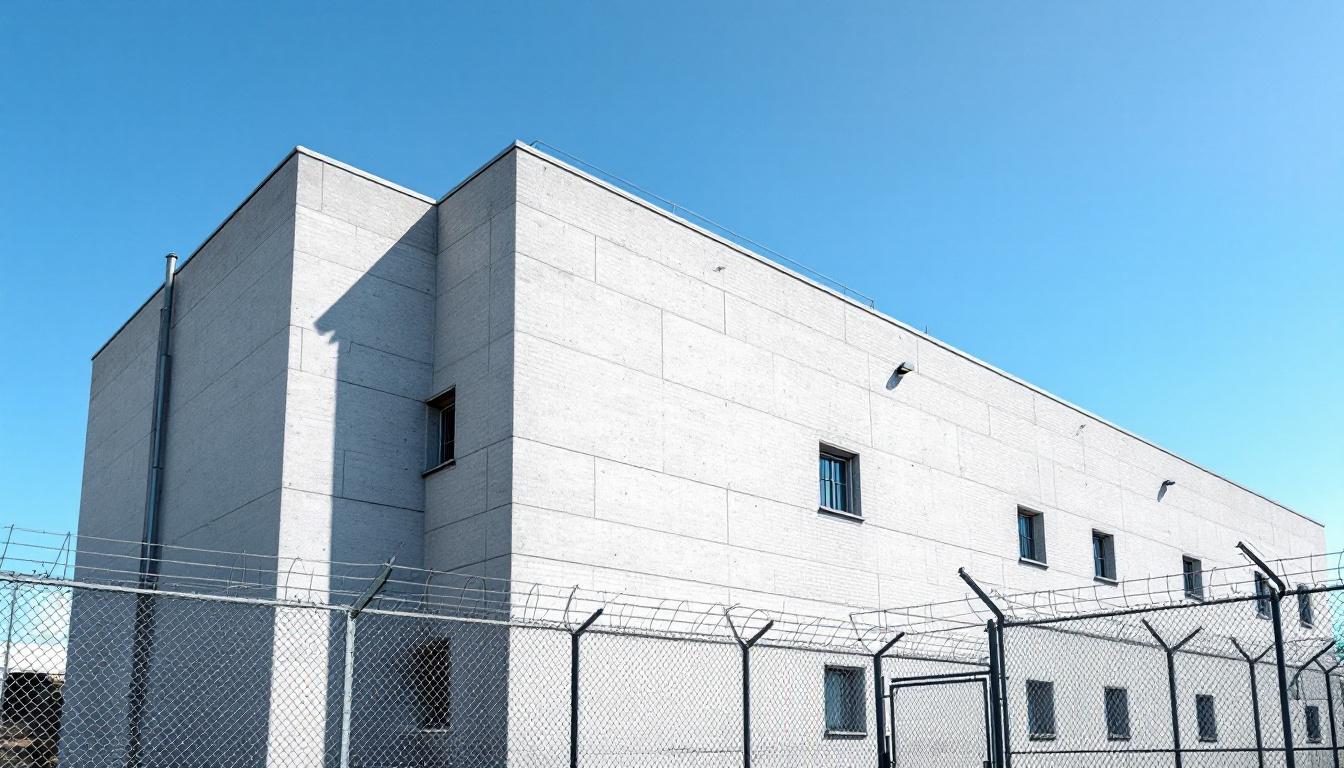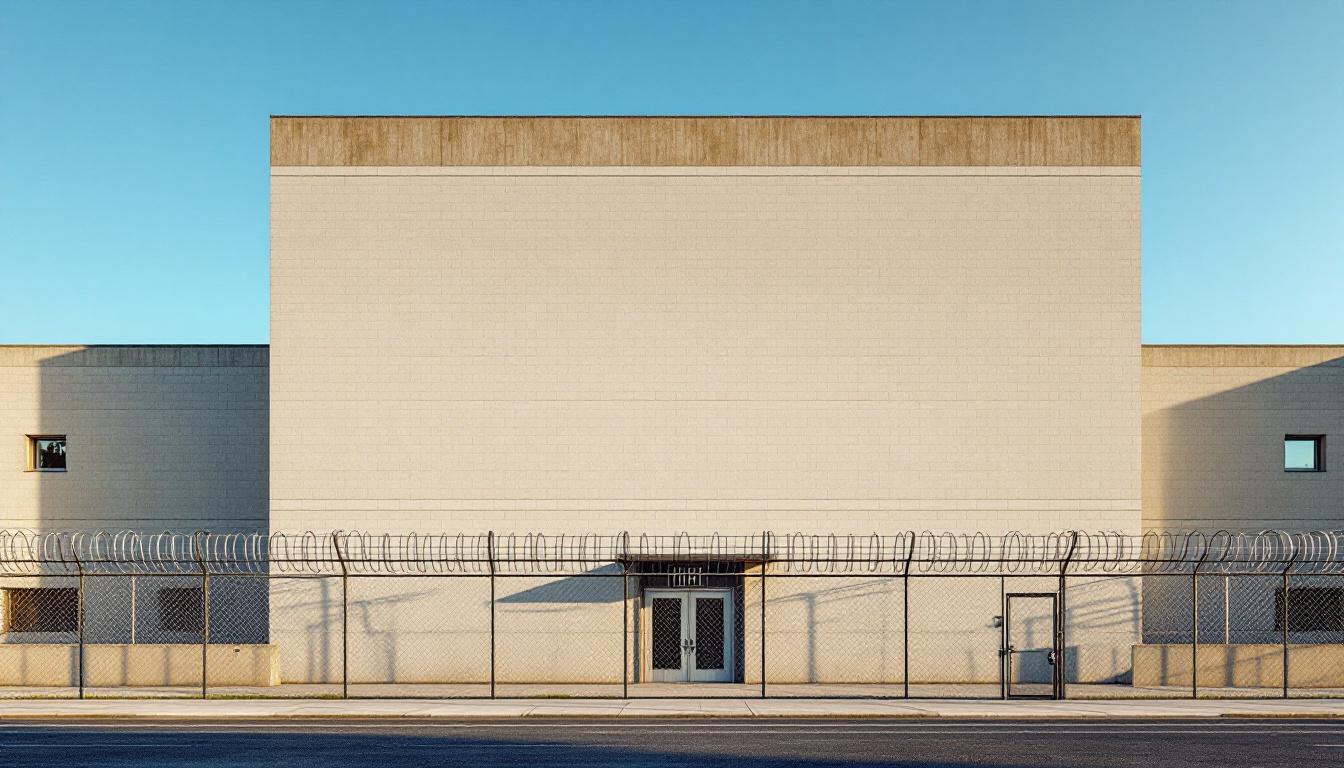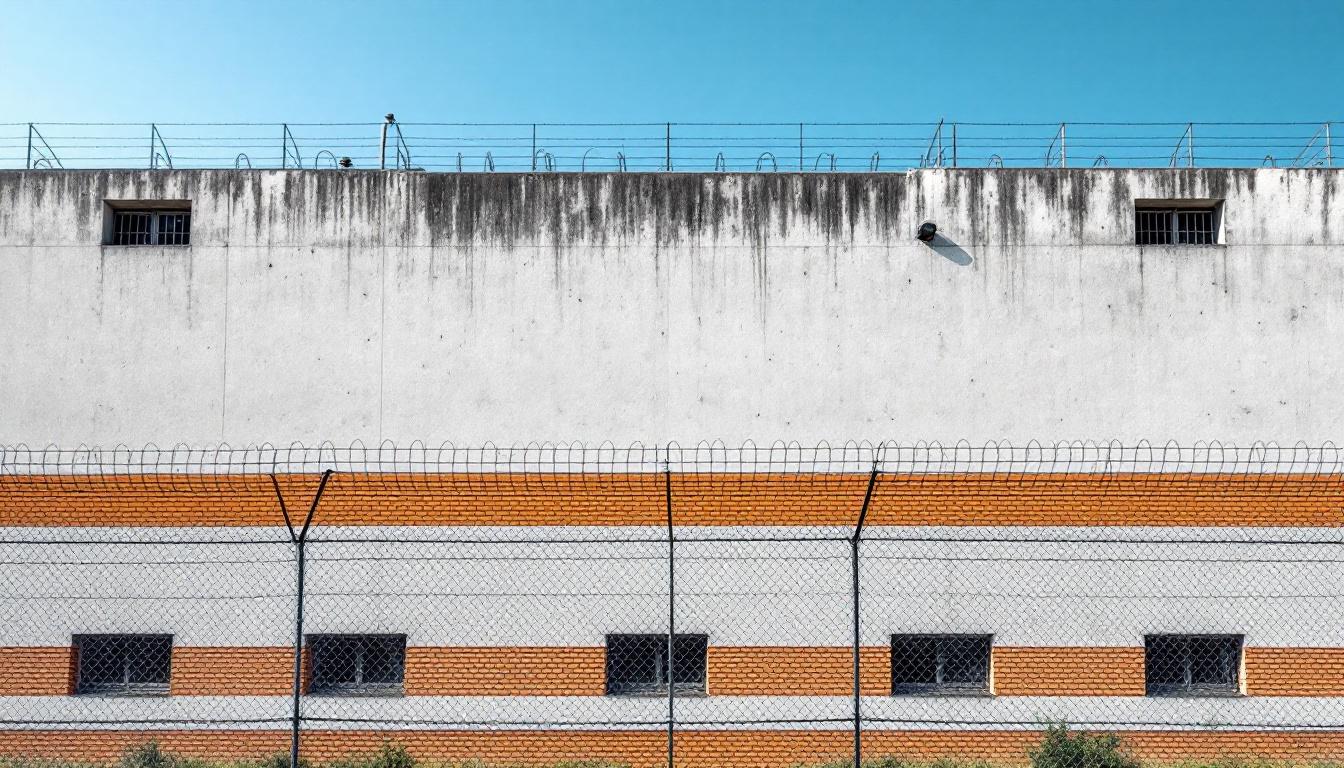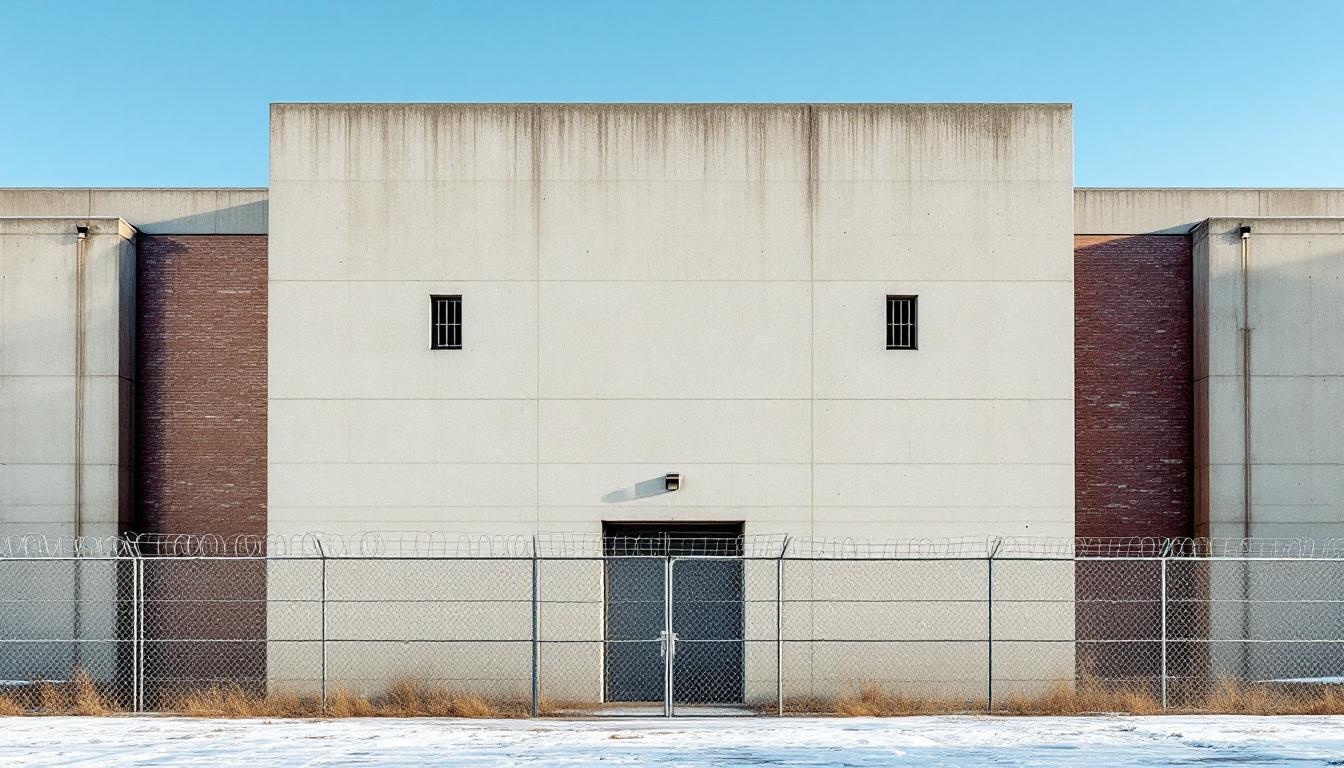
Quick Navigation
How to contact an inmate at Lonoke County Sheriff's Office
This comprehensive guide will walk you through how to connect with an inmate at Lonoke County Sheriff's Office. Follow the steps below to find an inmate and send letters and photos:
- Search for the inmate using our search tool below
- Create your account or log in to Penmate
- Write your message (up to 6,000 characters)
- Send instantly - inmates receive printed copies daily
Find an Inmate
Search for an inmate to start communicating today
Tip: You can search by first name, last name, or inmate ID number
To contact a person at Lonoke County Sheriff's Office start by searching for the person on the official facility website. Perform a search by following these steps:
- Step 1: Enter their first name and last name into the search form and click "Search"
- Step 2: Locate their inmate record
- Step 3: Write down their Inmate ID and any housing information provided
Important! Be sure to enter the person's full name. Nicknames should not be used.
How to Send Messages to Inmates

You can use your phone or computer to send emails, letters, and photos to an inmate. Messages are sent electronically to inmate tablets or kiosks at the facility. If you would like to send a message, start by searching for an inmate at Lonoke County Sheriff's Office.
Sending Photos and Postcards

A great way to send love and support to a loved one at Lonoke County Sheriff's Office is to send photos and postcards. It only takes a few minutes to send photos from your phone and it makes a huge difference. You can also mail postcards with words of support and inspiration, or design your own postcard for special moments like birthdays and holidays.
Important! Be sure not to send any explicit photos or they may not be approved by the facility. You can also use a photo printing app like Penmate to make sure your photos are printed at the correct size (4x6 or 3x5) and are mailed according to the rules and regulations of Lonoke County Sheriff's Office.
Frequently asked questions about Lonoke County Sheriff's Office
-
How long does it take to deliver a message?
If you're sending an email message your letter is usually delivered within 24-48 hours. For messages sent via mail you should expect delivery within 3-7 days. All messages will need be approved by Lonoke County Sheriff's Office.
-
How much does it cost to send a message to Lonoke County Sheriff's Office?
You can send a message free using your phone or mail a message via USPS for the price of a $0.60 stamp and envelope. You can also purchase credits or e-stamps from services starting at $1.99.
-
What services can I use to contact an inmate at Lonoke County Sheriff's Office?
Penmate
You can use Penmate to send letters and photos to an inmate from your phone. It's an easy way to stay in touch during your loved one's incarceration. Use the inmate locator to find an inmate's location and contact information, then you can send messages within a few minutes.
Securus messaging
Securus may be another option for communicating with an inmate at Lonoke County Sheriff's Office. You can create a friends and family account and purchase credits to send messages. All messages will be reviewed and must be approved by the facility.
JPay
Some county jails and state prisons may support sending messages with JPay. You must register an account with the system, find your loved one, and purchase stamps to send messages. For some locations you can also attach photos.
Smart Jail Mail
You may also check if Smart Jail Mail is available at Lonoke County Sheriff's Office. Smart Jail Mail is operated by Smart Communications and has contracted with some state and county jails. After purchasing credits, your messages and photos are sent to the facility, printed out, and then handed out to your loved one.
-
What is the mailing address of Lonoke County Sheriff's Office?
Mailing address:
Lonoke County Sheriff's Office
440 Dee Dee Ln
Lonoke, AR 72086
Phone: (501) 676-3001 -
What are the visiting hours at Lonoke County Sheriff's Office?
Visiting hours at Lonoke County Sheriff's Office vary by housing unit and security level. Generally, visits are scheduled on weekends and holidays, with some facilities offering weekday visits. Contact the facility directly at (501) 676-3001 or check their website for the current visiting schedule. Visits typically last 30-60 minutes and must be scheduled in advance.
-
What items are prohibited when sending mail to Lonoke County Sheriff's Office?
Prohibited items typically include: cash, personal checks, stamps, stickers, glitter, glue, tape, staples, paperclips, polaroid photos, musical or blank greeting cards, hardcover books, magazines with staples, and any items containing metal or electronics. Only send letters on plain white paper with blue or black ink. Photos must be printed on regular photo paper (no Polaroids). Always check with Lonoke County Sheriff's Office for their specific mail policies.
-
How do I send money to an inmate at Lonoke County Sheriff's Office?
You can send money to an inmate at Lonoke County Sheriff's Office through several methods: 1) Online using JPay, Access Corrections, or the facility's approved vendor, 2) Money orders mailed directly to the facility with the inmate's name and ID number, 3) Kiosks located in the facility lobby, or 4) Over the phone using a credit or debit card. Fees vary by method, typically ranging from $2.95 to $11.95 per transaction.
-
Can I schedule a video visit with an inmate at Lonoke County Sheriff's Office?
Many facilities now offer video visitation as an alternative to in-person visits. At Lonoke County Sheriff's Office, video visits may be available through services like Penmate, Securus Video Connect, GTL, or ICSolutions. Video visits typically cost $10-20 for 20-30 minutes and must be scheduled in advance. You'll need a computer or smartphone with a camera and reliable internet connection. Contact the facility for their specific video visitation policies and approved vendors.
-
What identification do I need to visit an inmate at Lonoke County Sheriff's Office?
All visitors must present valid government-issued photo identification such as a driver's license, state ID, passport, or military ID. Minors must be accompanied by a parent or legal guardian who can provide the minor's birth certificate. Some facilities require visitors to be on the inmate's approved visitation list, which may require a background check. Contact Lonoke County Sheriff's Office for specific ID requirements and visitor approval procedures.
-
How can I find out an inmate's release date?
To find an inmate's release date at Lonoke County Sheriff's Office, you can: 1) Use the online inmate search tool if available, 2) Call the facility's records department, 3) Contact the inmate's case manager or counselor, or 4) Have the inmate provide this information during a call or visit. For privacy reasons, some facilities only release this information to immediate family members.
Facility Overview
Contact Information
Lonoke County Sheriff's Office440 Dee Dee Ln
Lonoke, AR 72086
Phone: (501) 676-3001
Official Website

About Lonoke County Sheriff's Office
Correctional facilities across Arkansas serve as integral components of the state's justice system, providing secure environments where individuals work toward rehabilitation and eventual community reintegration. Within this framework, White River Correctional Center operates in Batesville, Arkansas, positioned strategically along the White River corridor that has long defined this region's character and connectivity. The facility typically serves the population services needs of Independence County and surrounding areas, functioning as part of the broader network of AR correctional facility operations that support both public safety and offender rehabilitation throughout the south region.
Located in Batesville, a community known for its river heritage and agricultural roots, this correctional facility generally provides housing and programming for adult offenders within Arkansas's correctional system. The geographic positioning along the White River area allows the facility to serve families and communities throughout north-central Arkansas, often facilitating visitation and maintaining crucial family connections that research shows support successful reintegration. Programs at the facility may include educational opportunities, vocational training, and behavioral interventions designed to address the underlying factors that contribute to criminal behavior.
White River Correctional Center typically operates with a focus on preparing individuals for their eventual return to communities throughout the river area region. The facility generally maintains security protocols appropriate for its designated population while emphasizing rehabilitation services that may include substance abuse treatment, life skills development, and work programs. Staff members often work to create an environment that balances accountability with opportunities for personal growth, recognizing that successful reintegration benefits both the individuals served and the broader Arkansas communities to which they will return.
Programs & Services
Through comprehensive programming designed to address diverse needs, White River Correctional Center cultivates an environment where meaningful transformation becomes possible for the population. The facility's approach to rehabilitation emphasizes building essential life skills while fostering personal growth through structured interventions that prepare individuals for successful community reintegration. This multifaceted strategy recognizes that sustainable change often emerges when educational opportunities, therapeutic support, and practical skill development work in concert to address the complex challenges faced by incarcerated individuals.
Educational and vocational programming typically forms the cornerstone of the facility's rehabilitative efforts, providing the population with pathways to acquire marketable skills and academic credentials. Vocational education programs may supply training in various trades that align with regional employment opportunities, enabling participants to develop competencies that enhance their prospects for stable employment upon release. Additionally, college correspondence courses often provide avenues for higher education, allowing motivated individuals to pursue academic advancement while maintaining their commitment to personal development during their period of incarceration.
The facility's therapeutic and support services complement educational programming through initiatives that address emotional well-being and spiritual growth. Mental health counseling services typically provide professional support for individuals managing psychological challenges, creating opportunities for healing and the development of healthy coping mechanisms. Additionally, agriculture programs may offer hands-on learning experiences that teach valuable skills while promoting responsibility and connection to productive work. Faith-based services often supply spiritual guidance and community support, while specialized programming focused on healthy relationships helps the population develop the interpersonal skills necessary for maintaining positive connections with family members and community networks upon their return to society.
Daily Life & Visitation
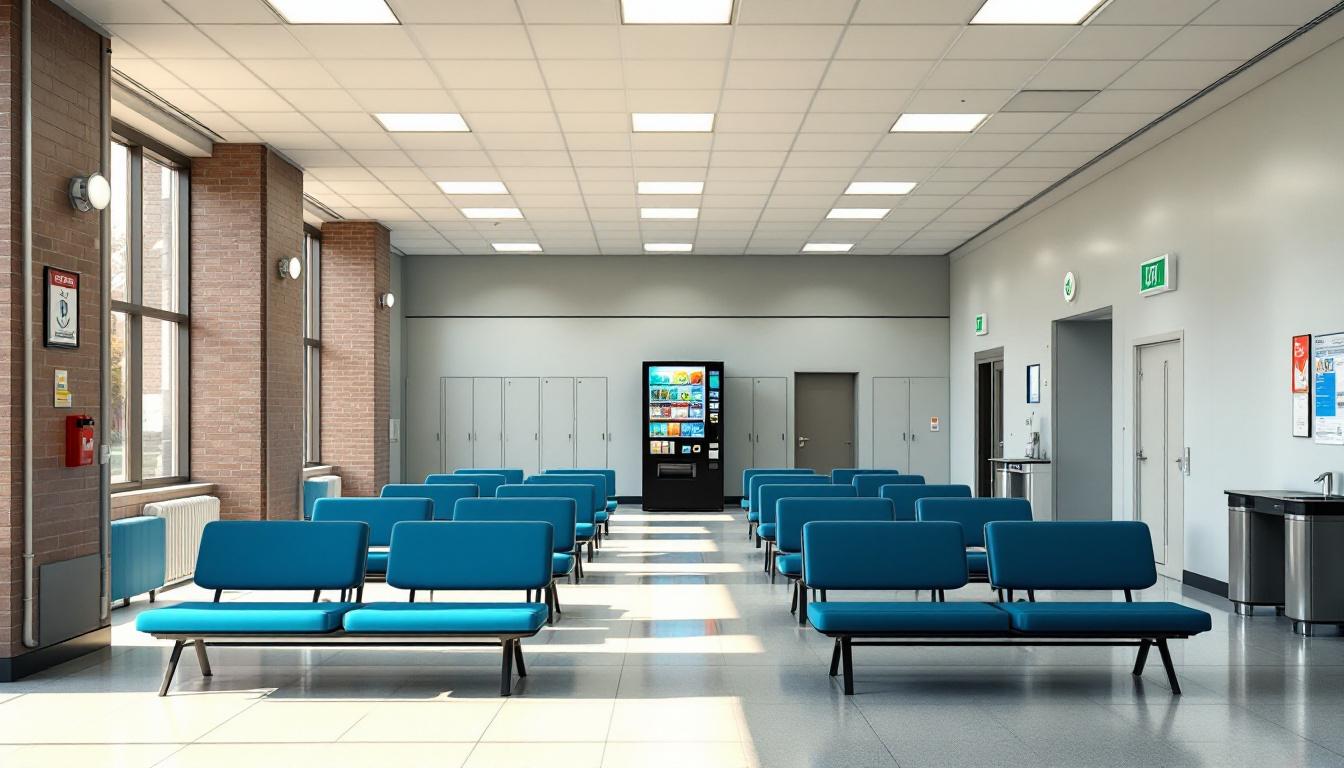
Carefully orchestrated schedules and systematic protocols shape every aspect of the experience for the population at White River Correctional Center, where structured routines provide both predictability and purpose to each day. Today's operations consistently revolve around predetermined timeframes that govern everything from meals and medical appointments to work assignments and recreational periods, ensuring that the facility maintains order while addressing the diverse needs of those in custody. The population typically begins each day with early morning counts and meal service, followed by work assignments or programming activities that may include educational classes, vocational training, or facility maintenance duties that supply essential structure to daily life.
Additionally, living accommodations within the facility generally consist of housing units designed to accommodate multiple residents, with each individual typically assigned personal space that includes basic furnishings and storage for approved personal property. The population usually shares common areas within their housing units, where they may gather during designated periods for recreation, television viewing, or social interaction under appropriate supervision. Meals are typically served in centralized dining areas according to established schedules, with the population rotating through meal service based on their housing assignments and daily programming commitments.
While maintaining security remains paramount, the facility generally provides various opportunities for physical activity and recreation, which may include outdoor exercise periods, gymnasium access, and organized sports activities when staffing and weather conditions permit. The population typically has access to commissary services where they can purchase approved personal items using funds from their institutional accounts, and visitation opportunities are usually available according to established schedules and security protocols. Communication with family members and support networks commonly includes monitored telephone access and correspondence privileges, helping the population maintain important connections to their communities while serving their sentences.
Ready to Connect?
Start communicating with your loved one today
Search for an Inmate
